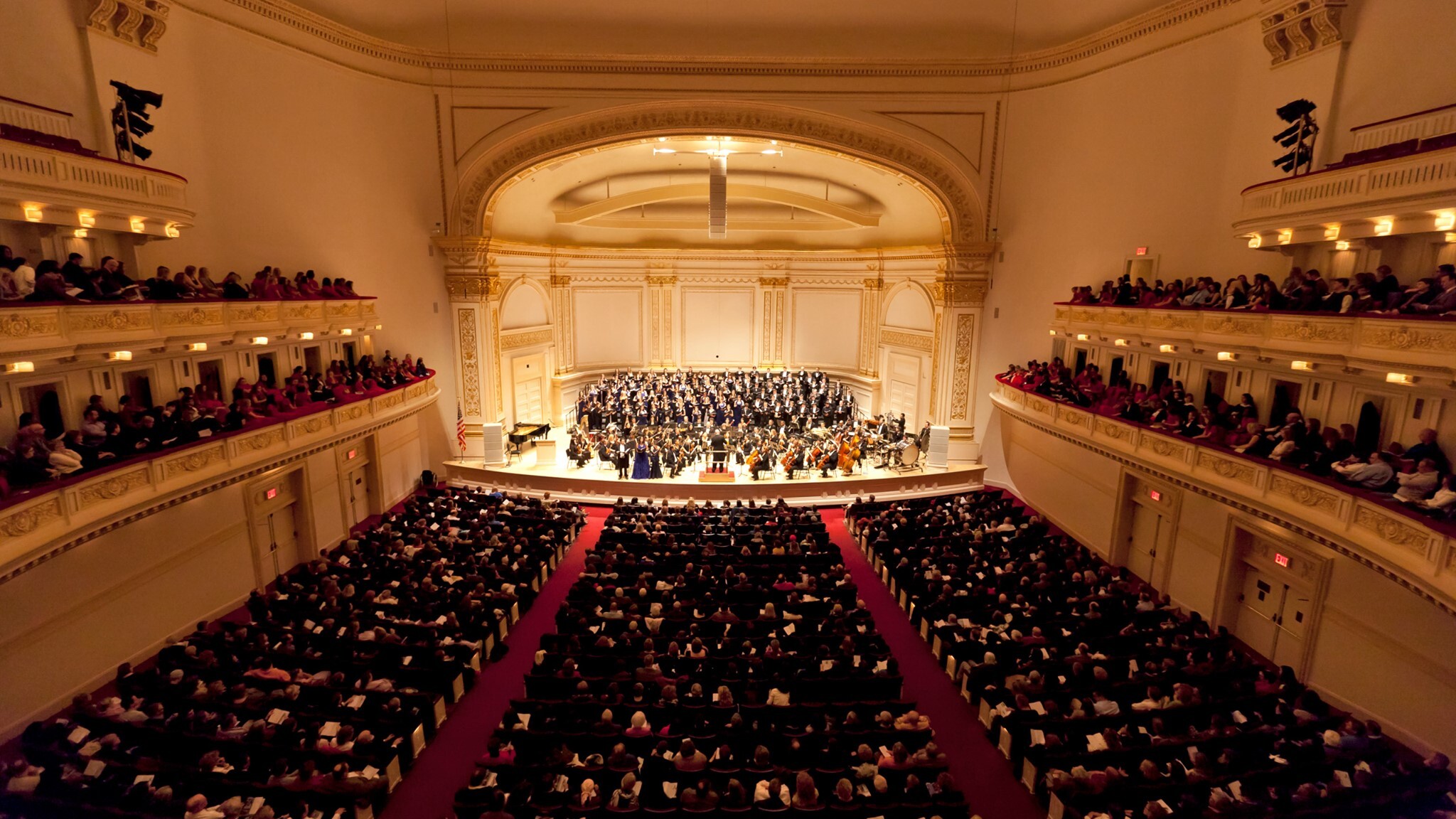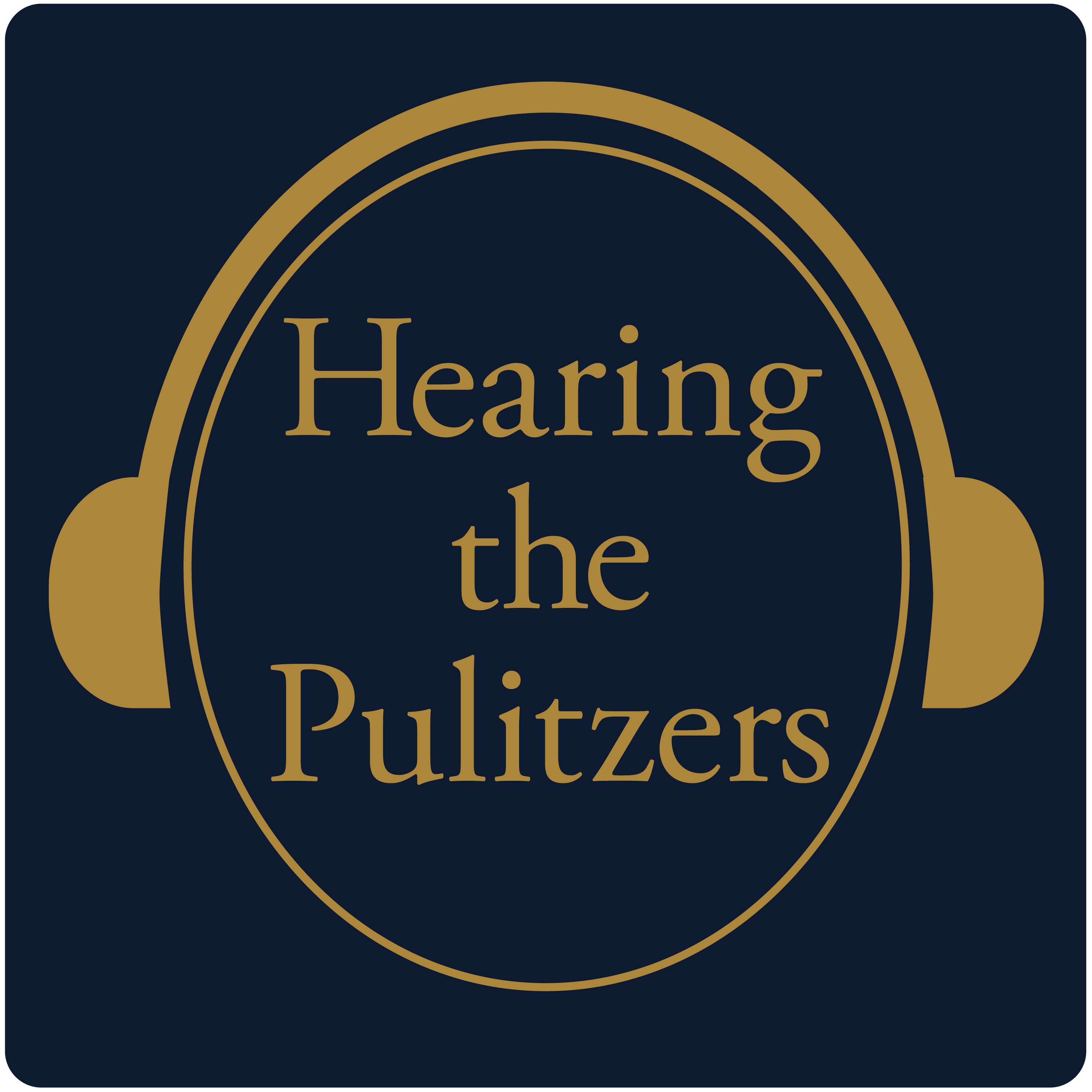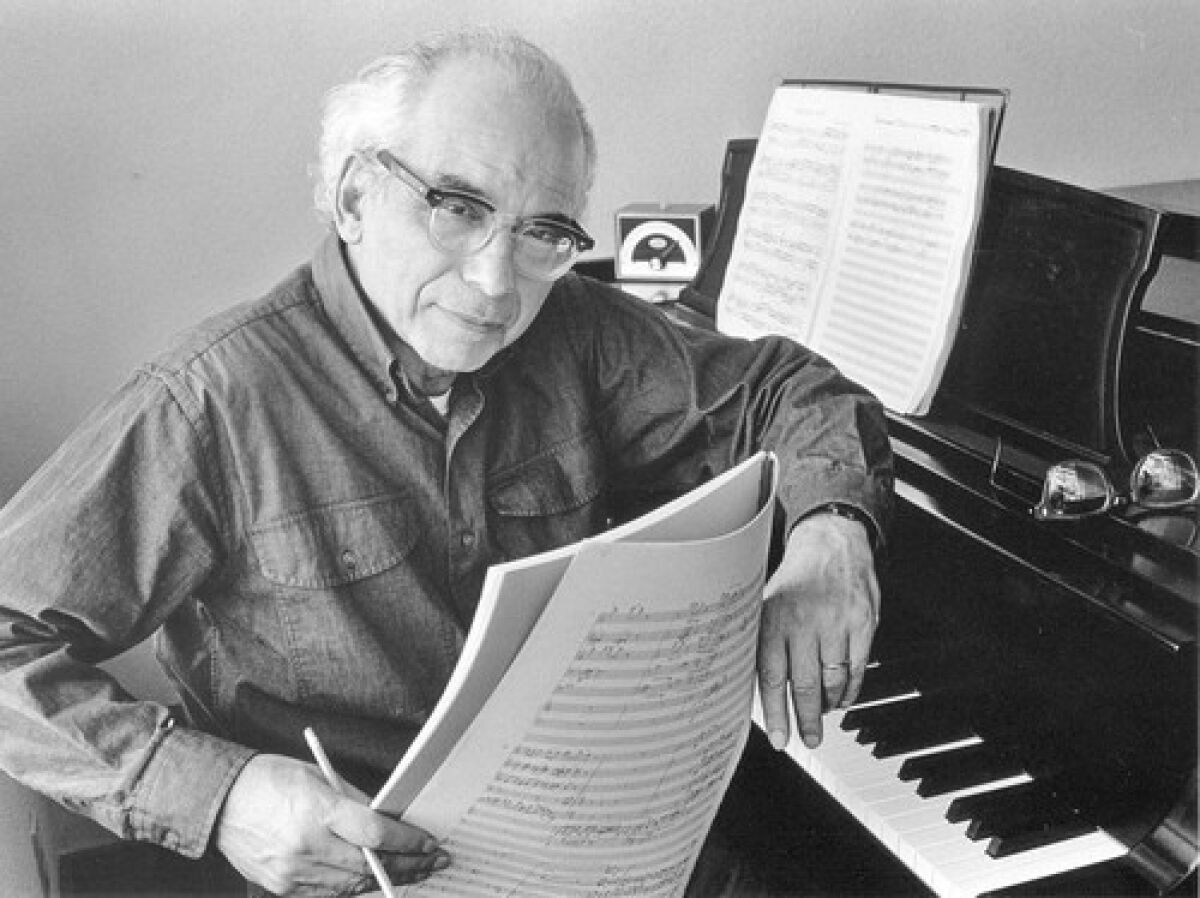Episodes
Thursday Dec 07, 2023
Bonus: An Interview with William Bolcom
Thursday Dec 07, 2023
Thursday Dec 07, 2023
In this special bonus episode, Dave and Andrew talk with 1988 Pulitzer Prize Winner William Bolcom. What is the difference between the Etudes and the New Etudes? What impact did John Cage have on his career? And who is answering the phone? We hope you enjoy hearing from him about these insights and many more!
Thursday Nov 16, 2023
Episode 46 - 1988: William Bolcom, Twelve New Etudes
Thursday Nov 16, 2023
Thursday Nov 16, 2023
In this episode, Dave and Andrew discuss the first solo piano work to ever win a Pulitzer Prize. And they try to answer the question–if these are "new" etudes, what are the "old" etudes? They also examine how Bolcom incorporates various styles and techniques into the etudes, and ponder the set's historical place among other etude collections.

If you'd like more information about William Bolcom, we recommend:
- Henry S. Jones's dissertation "William Bolcom's Twelve New Etudes for Piano" (Louisiana State University, 1994).
- Ji Sun Lee's dissertation "Revolutionary Etudes: The Expansion of Piano Technique Exploited in the Twelve New Etudes of William Bolcom" (University of Arizona, 2001)
- William Bolcom's website.
And if you'd like to read Dave's interview with Marc-André Hamelin (who premiered the entire set), you can find it here.
Saturday Sep 23, 2023
Bonus: An Interview with John Harbison
Saturday Sep 23, 2023
Saturday Sep 23, 2023
In this special bonus episode, Dave and Andrew talk with Pulitzer Winner John Harbison. Why did he decide to play the tuba? What was it like to study composition with two-time winner Walter Piston? What was the impetus for looking at the darker side of Christmas in The Flight Into Egypt? We hope you enjoy hearing from him about these insights and many more!
Wednesday Aug 30, 2023
Episode 45 - 1987: John Harbison, The Flight Into Egypt
Wednesday Aug 30, 2023
Wednesday Aug 30, 2023
In this episode Dave and Andrew discuss a composer known for his eclecticism, who writes music that features the influence of jazz, Stravinskian neoclassicism, Schoenbergian serialism, and a variety of popular idioms. But will that mixture of styles win them over when applied to a Biblical text about the "dark side" of Christmas?

If you'd like more information about Harbison, we recommend:
- Brian Galante's dissertation "John Harbison's The Flight into Egypt: An Analysis for Performance," University of North Texas, 2008.
- Mike Seabrook's "John Harbison and His Music," Tempo 197 (July 1996): 7–11.
- Tom Jacob's profile in the San Francisco Classical Voice.
Tuesday Jun 27, 2023
Episode 44 - 1986: George Perle, Wind Quintet IV
Tuesday Jun 27, 2023
Tuesday Jun 27, 2023
In this episode, Dave and Andrew discuss someone they know primarily as a music theorist. George Perle is celebrated for his theoretical work on twelve-tone theory and Alban Berg's music, but how does he stack up as a composer? And what do they think of the first woodwind quintet to win a Pulitzer?
For more information about George Perle, we recommend:
- George Perle, Twelve-Tone Tonality, 2nd edition (University of California Press, 1996).
- George Perle, The Operas of Alban Berg, Vol I and Vol II (University of California Press, 1989).
- Elliott Antokoletz, "George Perle: Man, Composer, and Theorist," Theory and Practice 33 (2008): 55-63.
- Steven Rosenhaus, "Harmonic Motion in George Perle's Wind Quintet No. 4" Ph.D. dissertation, New York University, 1995.
Wednesday Jun 07, 2023
Episode 43 -1985: Stephen Albert, Symphony RiverRun
Wednesday Jun 07, 2023
Wednesday Jun 07, 2023
In this episode, Dave and Andrew continue discussing the streak of Neo-Romantic winners of the Pulitzer Prize in music with Stephen Albert's Symphony RiverRun. But will this symphony win them over?
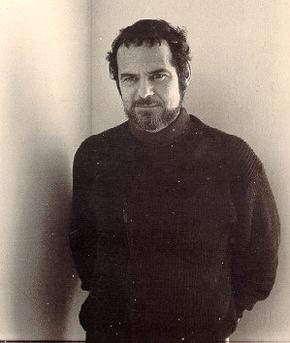

For more information about Stephen Albert, we recommend:
- Ron Petrides's dissertation "Pitch Organization in Stephen Albert's Symphony RiverRun: A Study in Modal Combinations and Tonal Centricity" PhD Diss, NYU, 2008.
- Holly Watkins's article "The Pastoral After Environmentalism: Nature and Culture in Stephen Albert's
Symphony: RiverRun" Current Musicology, no. 84 (2007): 7-24. - Stephen Albert's Website (maintained by Alissa Grimaldi)
Thursday May 11, 2023
Episode 42 - 1984: Bernard Rands, Canti del Sole
Thursday May 11, 2023
Thursday May 11, 2023
In this episode, Dave and Andrew discuss a composer associated with New Romanticism. But is that label reductive or does it accurately describe Bernard Rands's music? How about this song cycle based on poems about the sun?
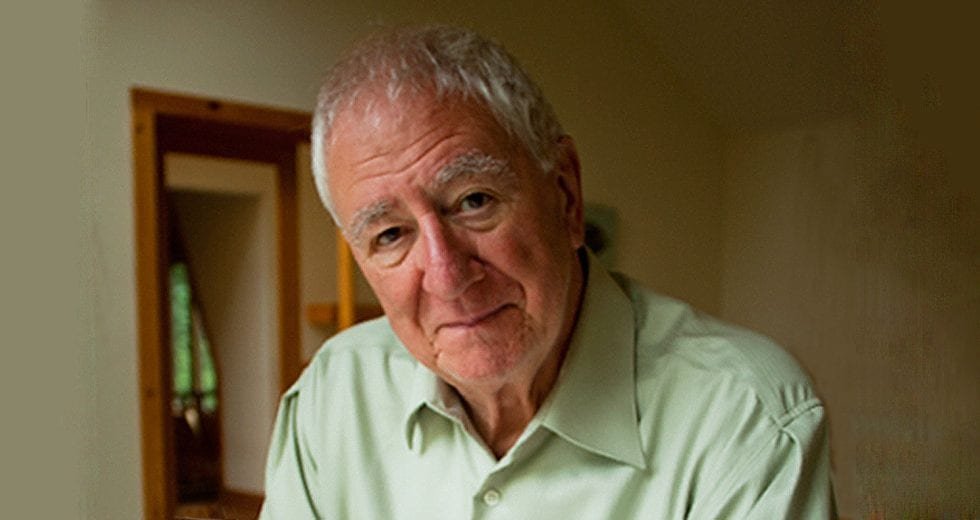
If you'd like more information about Rands, we recommend:
- Will Robin's article "Horizons ’83, Meet the Composer, and
New Romanticism’s New Marketplace" in Musical Quarterly, Vol. 102, nos. 2-3 (2019): 158–99. - Benjamin Rivera's thesis "An Introduction to the Musical Language of Bernard Rands, as Demonstrated in Canti d'Amor" from Roosevelt University in 2005.
- Bruce Duffie's interview with Bernard Rands.
Saturday Feb 25, 2023
Bonus: An Interview with Ellen Taaffe Zwilich
Saturday Feb 25, 2023
Saturday Feb 25, 2023
In this special bonus episode, Dave and Andrew talk with Pulitzer Winner Ellen Taaffe Zwilich. What did she learn studying at Florida State University and with former Pulitzer winners Roger Sessions and Elliott Carter? And why does she have a framed "Peanuts" cartoon in her studio? We hope you enjoy hearing from her about these insights and more!
Friday Feb 10, 2023
Friday Feb 10, 2023
In this episode, Dave and Andrew discuss the first female Pulitzer Prize winner, Ellen Taaffe Zwilich, who wrote a symphony of all things. What will they think about the first symphony to win the prize since Walter Piston's Symphony No. 7 back in 1961?
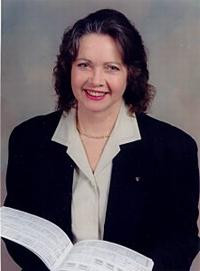
As promised in the episode, here's Ellen Taaffe Zwilich's appearance in Peanuts.

If you'd like more information about Zwilich, we recommend:
- Julie Schnepel's article "Ellen Taaffe Zwilich's Symphony No. 1: Developing Variation in the 1980s" in Indiana Theory Review Vol. 10 (Spring and Fall 1989): 1-19
- Anthony J. Palmer's "Interview with Ellen Taaffe Zwilich" in Philosophy of Music Education Review Vol. 19, No. 1 (Spring 2011): 80-99.
- Ellen Taaffe Zwilich's website.
Sunday Jan 15, 2023
Episode 40 - 1982: Roger Sessions, Concerto for Orchestra
Sunday Jan 15, 2023
Sunday Jan 15, 2023
In this episode, Dave and Andrew discuss the third winner of the Pulitzer Prize to study with Horatio Parker at Yale, Roger Sessions, for his Concerto for Orchestra. Since the other two winners were Charles Ives and Quincy Porter, it isn't a shock that Sessions was 85 years old when he won. What will they think about this blast from the past?

If you'd like to learn more about Roger Sessions, we recommend:
- Roger Sessions on Music: Collected Essays, edited by Edward T. Cone (Princeton University Press, 1979).
- Andrea Olmstead's book Roger Sessions: A Biography (Routledge, 2008).
- The Correspondence of Roger Sessions by Andrea Olmstead and
Roger Sessions (Northeastern University Press, 1992) - The Roger Sessions Society
